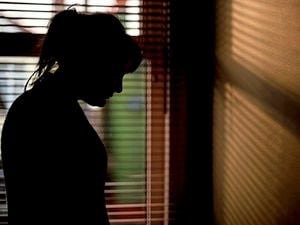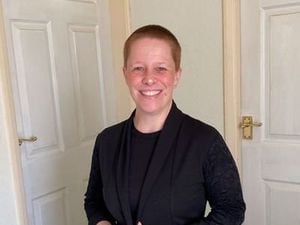Epidemic of domestic abuse has to be exposed
Jade Secker looks to break down the stigma of domestic violence in today's Talking Point column

October is domestic violence awareness month – an opportunity for society to break down the stigma that prevents so many from seeking the support they deserve in order to escape the horrific situations they find themselves in behind closed doors.
Domestic abuse doesn’t fit into stereotypical check boxes.
It can happen to anyone of any age, religion, gender, social status or economic background. Similarly, abusers aren’t always the clichéd mean and brawly looking men with shaved heads and covered in tattoos. Abusers are often right under your nose.
The friendly male doctor who you trust to cure your illnesses, the man who delivers your milk in the morning and always wears a smile, the timid guy in the office who always offers to help you out – they are all capable of being abusers.
Domestic abuse is a hidden global epidemic and its effects are widespread. Some one in four women in the UK will experience it at some point in their lives. That’s not just a statistic, it’s your mom, your friend, your sister, your neighbour, your daughter. When two women every week are killed in the UK by their current or ex-partner, you might ask, ‘why don’t we hear more about this?’
The fact of the matter is that, unfortunately, to acknowledge that this insidious act happens all around us would mean we are forced to acknowledge a truly ugly side of humanity and accept that people we know and love are capable of putting another through the torment of abuse.
As humans, our psyche tells us it’s easier to turn a blind eye, leaving those in need of support effectively alone.
Additionally, we need to address the victim-blaming culture that continues to thrive in society. “Why didn’t she just leave?”; or “she was asking for it dressed like that.”
Time and time again, we hear these statements being made; not only in passing conversation, but also as a means of defence against charges of rape and violence in court – this is wrong. This not only validates appalling acts of abuse by men, but also wrongly puts the onus on the woman to put an end to it. Instead we should be asking ‘why didn’t he stop?’ and ‘why did he do that to her’.
Fundamentally, this is much closer to the core of the problem and by asking these types of questions it will force society to address the real underlying issues surrounding abuse. Publicly, abuse is often only recognised as a physical act of violence. However, it is often the emotional and psychological abuse that has the most detrimental and lasting impact on survivors and often goes unnoticed; even by those suffering.
During this month in particular, The Haven are shining a spotlight on different areas of abuse to dispel myths and reach out to those who need it most. If you or someone you know may be suffering, call their free helpline on 08000 194 400.
Jade Secker is senior community fundraiser at The Haven in Wolverhampton





